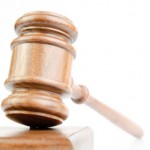 A recent ruling by the Prince William County Circuit Court declared that interviews by carriers with their insured regarding an auto accident fall within the shield provided by the “work product” doctrine of supreme Court Rule 4:1(b)(3). The Virginia Court of Appeals upheld the decision. Plaintiff’s motion to compel was denied for several reasons.
A recent ruling by the Prince William County Circuit Court declared that interviews by carriers with their insured regarding an auto accident fall within the shield provided by the “work product” doctrine of supreme Court Rule 4:1(b)(3). The Virginia Court of Appeals upheld the decision. Plaintiff’s motion to compel was denied for several reasons.
First, the court stated that the “work product” doctrine “protect[s] not only materials gathered by or for counsel in anticipation of litigation, but materials gathered by or for others, including the liability insurance carrier.” Furthermore, the court cited Veney v. Duke for the proposition that discussions of third party coverage is protected by the “work product” doctrine, and extended that logic to discussions of first party coverage. Finally, since the case at bar involved an insured who plead guilty to a traffic infraction and contested liability in a subsequent civil case, the court stated that the affirmative duty of defense counsel to prevent his client from testifying to a known falsehoods “offers sufficient protections.”
This ruling has important ramifications for Virginia subrogation attorneys, insurance defense firms and personal injury attorneys. For the Virginia subrogation attorney, this ruling confirms an intuition long held, that those conversations by insurance adjusters regarding third party coverage should be protected under Virginia’s “work product” doctrine. Insurance defense firms facing Virginia subrogation firms should expect to be stymied by this latest ruling when issuing subpoenas duces tecums in the future.
Justin McLeod
Contractual vs. Equitable Subrogation in Virginia
 Equitable Subrogation in Virginia
Equitable Subrogation in Virginia
Subrogation is the legal process in which an insurer can step into the shoes of their policyholder to recover damages from the third party responsible for the loss. Equitable subrogation is based on equity, or fairness, as defined by the Virginia Supreme Court in Xl Specialty Ins. Co. v. Dept. of Transp., 611 S.E.2d 356, 269 Va. 362 (Va, 2005):
Equitable subrogation is subrogation that arises by operation of law. It is not based on contract or privity of parties, but is “purely equitable in nature, dependent on the facts and circumstances of each particular case.” Centreville Car Care, Inc. v. North Am. Mortgage, 263 Va. 339, 345, 559 S.E.2d 870, 872 (2002) (quoting Federal Land Bank of Baltimore v. Joynes,179 Va. 394, 402, 18 S.E.2d 917, 920 (1942)). When a principal defaults on a contract guaranteed by a performance or payment bond and the surety performs on the bond, principles of surety law and the doctrine of equitable subrogation impose certain rights and duties running between the surety, principal, and obligor, and allow the surety to enforce such rights and duties. See Dickenson v. Charles, 173 Va. 393, 400, 4 S.E.2d 351, 353 (1939) (quoting Kendrick v. Forney, 63 Va. (22 Gratt.) 748, 749-50 (1872)); Fulkerson v. Taylor, 100 Va. 426, 432,41 S.E. 863, 865 (1902); Restatement (Third) of Suretyship and Guaranty § 27 (1996).
Equitable subrogation arises from the common law and can work against the insurer conducting business in Virginia. For instance, where the Virginia policyholder has uninsured losses and recovers a judgment against the tortfeasor that does not equal the amount of total loss suffered by the insured, then the insurer cannot recover against the third party.
Contractual Subrogation in Virginia
The key difference in Virginia between equitable subrogation and contractual subrogation is that judges ultimately decide the outcome of an equitable subrogation action, while the language and intent of the parties control the outcome in a contractual subrogation case. It is imperative for the parties to a subrogation case to understand the language of the insurance contract and how it affects subrogation rights. For instance, insurance contracts can be written to give the insurer first right of subrogation, which cuts off most equitable subrogation worries. Virginia subrogation attorneys would be wise to discuss contract provisions with clients operating in Virginia.
Editor:
Justin McLeod, Esq.
Associate
Chaplin & Gonet
New Subrogation Arbitration Rules
 Important changes have been implemented by Arbitration Forums, Inc. that affect subrogation practitioners appearing in the Property Arbitration Forum. These rules came into effect last month, March 1, 2012, and one of the most profound changes manifests itself in Rule 3-7, stating:
Important changes have been implemented by Arbitration Forums, Inc. that affect subrogation practitioners appearing in the Property Arbitration Forum. These rules came into effect last month, March 1, 2012, and one of the most profound changes manifests itself in Rule 3-7, stating:
“All written contentions and supporting evidence submitted to the Forum are all that is to be considered by a Property Arbitration arbitrator, and that a party attending the hearing is not allowed to verbally present its case or offer any argument that is not included within their written contentions.”
Rule 3-7(a) goes on to state that practitioners may clarify or amplify points made in written contentions, or submit additional evidence, at the arbitrator’s request. No arguments may be presented, and only questions posed by the arbitrator may be answered. Finally, Rule 3-7 has shortened the time allowed to submit evidence for arbitration, now all evidence must be received by the Materials Due Date, instead of the arbitration hearing date, as was previously the case.
This represents a major strategic shift for the Virginia subrogation attorney entering a arbitration with an opposing insurance company. Now, practitioners must be ever closer attention to the deadlines handed down by arbitrators to ensure all relevant evidence has been submitted. Furthermore, practitioners must ensure that any emotional impact or consequential damages are adequately represented in the written contentions and evidence. No longer can Virginia subrogation counsel rely on verbal arguments to elucidate for the arbitrator how the written evidence impacted the claimant.
For more on Virginia subrogation visit: https://www.chaplingonet.com
